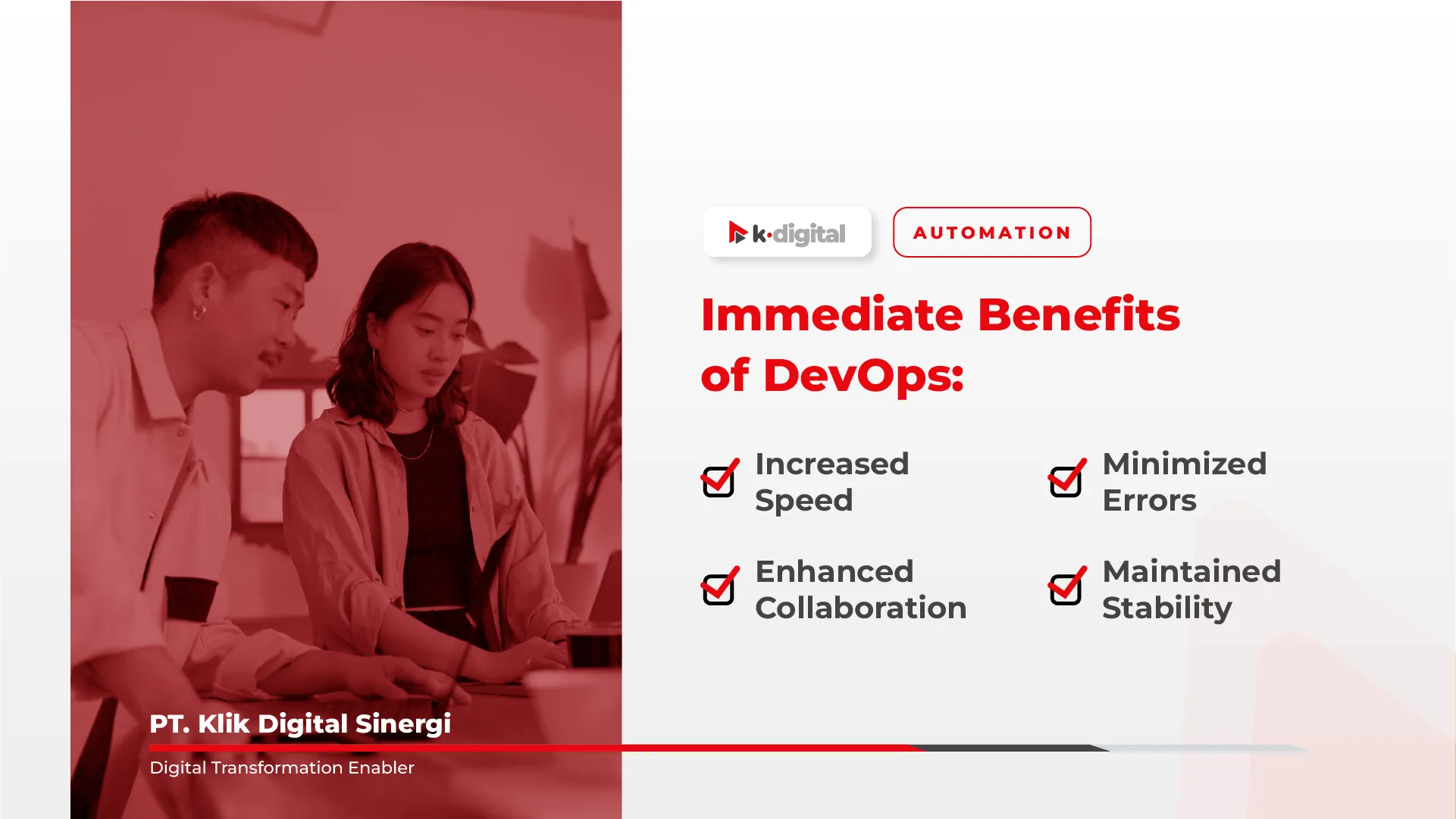In earlier times, development and operation teams often worked separately, leading to lengthy development processes, lack of collaboration, and innovation slowdowns. However, we have now entered the era of digital transformation, DevOps present as a solution to bridge this gap.
What Is DevOps?
DevOps is an approach that combines a set of practices, tools, and culture to automate and integrate processes between software development team and IT operations team. It enables greater collaboration, resulting in faster and robust feature delivery.
DevOps runs through a continuous cycle that consists of several important phases:
- Planning & Development: In this phase, the team defines new features that need to be built and developers start writing code using tools such as Git.
- Building & Testing: The code written then tested through a manual & automation testing process to ensure all components work seamlessly, as well as evaluate its functionality and check for bugs.
- Release & Deployment: Once the code passes the testing process, the team will then release and deploy it to production servers allowing users to access new features quickly.
- Operation & Monitoring: The operations team is responsible to ensure the server runs smoothly, resolve any issues that occur, and scale the application as needed.
- Feedback: Information related to application performance and user interaction is collected as feedback. Developers use this feedback to understand the effectiveness of features and make improvements for future updates.
DevOps emphasizes the importance of continuous and staged updates over major but infrequent releases. This allows DevOps to deliver digital transformation benefits that can be perceived by both teams and customers.

Key Benefits of Implementing DevOps
Some of the key benefits of implementing DevOps include:
- Enhanced Speed of Feature Delivery: Streamlined and automated workflows allow new features to reach users faster.
- Minimized Errors: Automated testing and continuous delivery help detect bugs in the early stage of development, which leads to minimize errors and improved product quality.
- Increased Collaboration: DevOps encourages close collaboration between Dev and Ops teams, resulting in more open communication and a better understanding of each other's needs.
- Maintain Application Stability: Continuous monitoring and rapid fixes help maintain application stability and reliability, minimizing downtime and disruption for users.

Core Values of DevOps
As a digital transformation solution, DevOps role is not only as tools and practices. DevOps is needed in digital transformation as a culture shift that encourages the transformation of the way teams work together. The philosophy of DevOps emphasizes the importance of communication, collaboration, and continuous learning within the team.
By implementing DevOps, companies can increase their efficiency, accelerate innovation, and produce more reliable and high-quality software products. This leads to customer satisfaction and provides advantages compared to competitors in the era of Digital Transformation.

Stay relevant, stay competitive!
With Klik Digital Sinergi, experience the full value of DevOps with our professional team!


RELATED POST
Why DevOps Is Called the Modern Evolution of Software Development
Jul 18, 2024
Reasons Why DevOps Is Gaining Popularity in Business
Jul 24, 2024
Klik Group 11th Anniversary
Dec 02, 2024